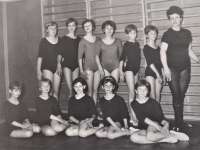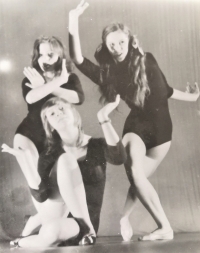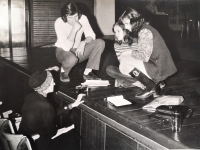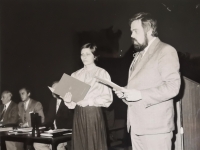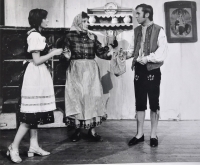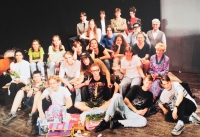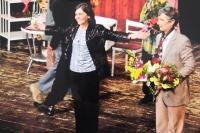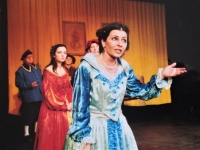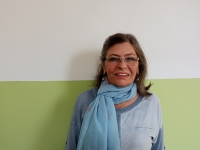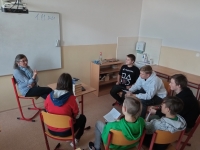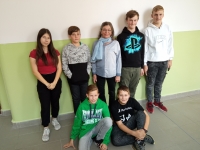I’ve been a warrior since I was a child

Download image
Jitka Juračková, a single Vohralíková, was born on November 8, 1956 in Pardubice. She spent her childhood in Holice, all her life she devoted herself to dance and theater as an amateur. She graduated as a nurse and taught dance at an art school for part of her life. In the 1980s, she served as a member of the local national committee. In 1989, she became one of the main organizers of the general strike in Holice, and also supported university students in strike action. In 2021 she lived in Holice and worked in the pulmonary department as a nurse.
